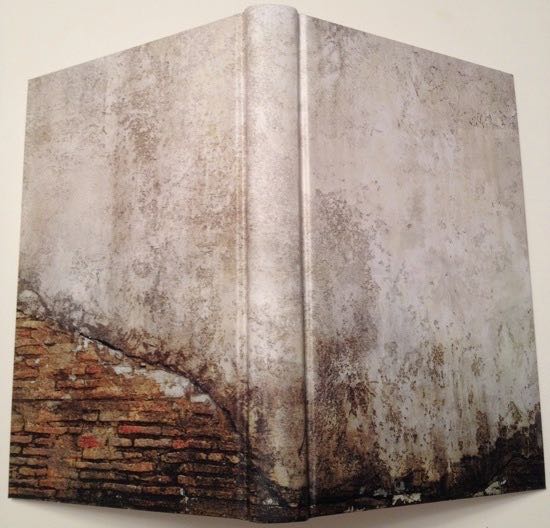
'There are those who make it a principle not to like anything that is popular, out of a mistrust of mass taste. Those who have never caught on are their preserve. They look with disdain on all the rest.'
This passage (from 'Without Instruments') sums up, to some extent, the outlook of Mark Valentine. His tales seldom deal with the obvious, the commonplace, the clichéd. Instead his characters seek out the rare, the baffling, the downright impossible - often learning something to their great disadvantage in the process. Instead of the monsters and menaces of conventional horror fiction, they encounter stranger and perhaps more credible terrors. There is also a fair leavening of humour. Indeed, lack of humour in a Valentine character is a warning sign that something less than delightful could soon befall them.
All but one of Seventeen Stories have been published before, and indeed I've mentioned some in earlier reviews. But a lot of the tales gathered here are not easy to find. 'The Seer of Trieste', a fascinating exploration of the byways of literary history, was published as a chapbook. 'Yogh', with its very unusual haunting (I've only come across one other story like it, and that was by Harry Harrison, of all people) appeared in Ro Pardoe's Ghosts & Scholars Newsletter.
The stories are marshalled into five categories. Thus the Three Singular Detectives section begins with a trip to Baker Street for 'The Adventure of the Green Skull', and an extremely enjoyable adventure it proves. Conan Doyle had a social conscience and this mystery - while grotesque - would have appealed to him. Two slighter tales, 'Prince Zaleski's Secret' and 'The Return of Kala Persad' offer excellent ideas, and some wry comment on the treatment of 'exotic' characters such as fiendish Orientals and Indian mystics in Edwardian fiction.
The arrangement by category rather than, say, date shows how versatile a writer Mark Valentine is, and how tricky it is sometimes to pin down the genre he's working in. Can this be horror? Well, several stories first appeared in horror anthologies. They all differ in tone and style, but none offers actually horror in the conventionally understood sense. To (mis)quote Monty Python, you get no blood spurting up the walls and flesh flying out of the windows inconveniencing passers-by.
'The Fall of the King of Babylon', an East Anglian tale, comes close to mainstream horror with its account of a stranger infiltrating a marshy nest of villains near Ely. There's a distinct whiff of historical adventure as well as shapeshifting weirdness, though. 'You Walk the Pages' is very different, and its narrator - a vindictive misfit who may have special powers - is certainly familiar. But again, the horror is almost subverted by the character's obsession with ancient wonders, so that the conclusion is almost uplifting.
Then in the story quoted above, 'Without Instruments', we encounter another fairly familiar horror trope - the piece of music that's never before been performed. One excellent example is Ramsey Campbell's 'Never To Be Heard'. The expectation, of course, is that playing the 'lost' composition will conjure up something or someone. However, Valentine's twist on this is so unusual that once more we seem to be ushered through strange, Machenesque portals to a new kind of understanding.
Indeed, of all the stories here the most horrific is one that offers precisely no violence and no real hint of the supernatural. 'The Other Salt' is a gentle, restrained account of a French scholar in search of a rare condiment, whose source has been lost. Nothing could seem more trivial. Yet the story's conclusion seems - to me, at least - to comment on the atrocities that have stained the pages of European history. It is a profoundly moral story that shuns any obvious moralising. Such tales are too rare.
Is Valentine a fantasist? Yes, but in a much broader sense than is often meant today. Fantasy has been so drastically re-defined down the years thanks to the sword 'n' sorcery crowd that the term has become too tight a fit for our most imaginative authors, though there are signs that things are changing. Thus 'Morpheus House' offers a day in the life of a functionary whose job is to catalogue accounts of dreams. But, after a series of strange maybe-coincidences, the tale ends in a burst of exuberance that's at once realistic and somewhat Chestertonian.
'The 1909 Prosperine Prize' is also informed with a sense of fun that hints at deeper seriousness. A group of worthies meet every year to select a book that 'most skilfully went into the dark and emerged with something of the light'. Cue references to Stoker, Shiel, Blackwood, Hodgson, and quite a few authors who were new to me. No spoilers here, but the twist is an immensely enjoyable one and makes me with someone would try the same thing on the Booker jury.
The love of books, and the perils that can beset the bibliophile, are recurring themes. 'The Late Post' sees a fussy bibliophile encounter a hybrid menace spawned by two classic tales. 'The Tontine of Thirteen' nods to Stevenson in the title, and has a wonderful opening scene at a graveyard on the fells of Westmoreland, but actually focuses on the vanity of an obscure author. Perhaps the only conclusion that can be drawn is that Valentine is a writer in love with the great tradition of the weird tale. Anyone who shares this passion is unlikely to be disappointed by Seventeen Stories.
Many of Valentine's characters are collectors of beautiful books, so I wonder if any of them are chasing limited editions of his work? The Swan River Press has certainly produced a collector's item, complete with splendid dustjacket and beautiful boards.





No comments:
Post a Comment